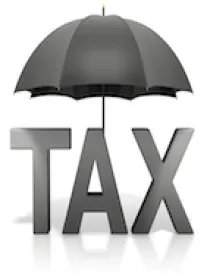Notwithstanding all the doom and gloom around these parts about “the bill formerly known as the Tax Cuts and Jobs Act” (final name pending conclusion of sponsorship negotiations),1 the final bill created a new tool for economic development in low-income communities, called the “Opportunity Zone” program. The program provides incentives for taxpayers to invest in low-income communities by allowing them to defer and potentially avoid gain on the sale of stock or other property if they reinvest their gains in a low-income community through an “Opportunity Fund.” But, state governors must act soon to designate eligible census tracts as Opportunity Zones, or they may lose the opportunity forever.
Our colleague Steve Mount has written a comprehensive analysis of the new program for BNA’s Tax Management Real Estate Journal; you should download it from the Squire Patton Boggs website by clicking here. Click through for a brief summary of the program here, and be sure to download Steve’s article for the full details on this new program.
Under the Opportunity Zone program, if an individual or corporate taxpayer sells property (stock and both business and non-business assets, etc.), then the taxpayer can defer (and partially avoid altogether) an unlimited amount of tax on any gain from the sale by reinvesting an amount of proceeds equal to the gain in a low-income community by contributing those amounts to an “Opportunity Fund.”
An “Opportunity Fund” is any corporation or partnership that invests at least 90% of its assets in “Opportunity Zone Businesses.”
An “Opportunity Zone Business” is any business that has substantially all of its assets located in an Opportunity Zone and that derives at least 50% of its gross income from the active conduct of a business within the Opportunity Zone. There are limits on the amount of investment assets that an Opportunity Zone Business can have, and an Opportunity Zone Business cannot be involved with any of the “sin” businesses listed in the statute, which will be familiar to those who have worked with the New Markets Tax Credit program.
An “Opportunity Zone” is a census tract that is designated by the governor of each state (or, in the case of Washington D.C., the mayor). A census tract is eligible to be designated as an Opportunity Zone if it meets certain poverty thresholds or, in certain cases, if it’s adjacent to a census tract has been designated as an Opportunity Zone. The law places limits on the number of Opportunity Zones that a governor can designate in each state. The Opportunity Zone program is similar in aim to the New Markets Tax Credit program. In Rev. Proc. 2018-16, the IRS has provided a safe harbor through the Community Development Financial Institution (CDFI) Fund’s Information Resource (available by clicking here) for the states to choose census tracts that are eligible to be designated as Opportunity Zones.2
Importantly, the deadline for designating an Opportunity Zone is approaching quickly. State governors must designate any Opportunity Zones on or before March 21, 2018. They can request one 30-day extension of the deadline from the Secretary of the Treasury, but only one extension is available under the statute.
Most state governors are preparing to designate Opportunity Zones and soliciting recommendations, but those that are not should begin doing so immediately. Similarly, state and local government readers will want to research the process that their governor’s office has outlined for designating Opportunity Zones and request a designation for any areas in their jurisdiction that qualify.
1. Cf. Caprera, David A., “Naming Rights . . . and Wrongs,” The Quarterly Newsletter[of the National Association of Bond Lawyers], Vol. 17, No. 4, (Dec. 1, 1996), pp. 35-36, available at https://www.nabl.org/portals/0/documents/TheBondLawyer-dec96.pdf (last accessed Feb. 17, 2018).
2. The CDFI Fund is an arm of the U.S. Treasury that is also involved in administering the New Markets Tax Credit program.




 />i
/>i
